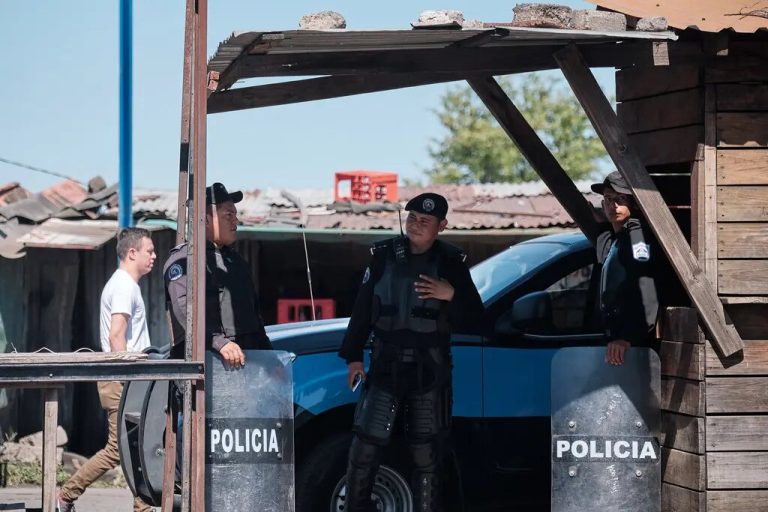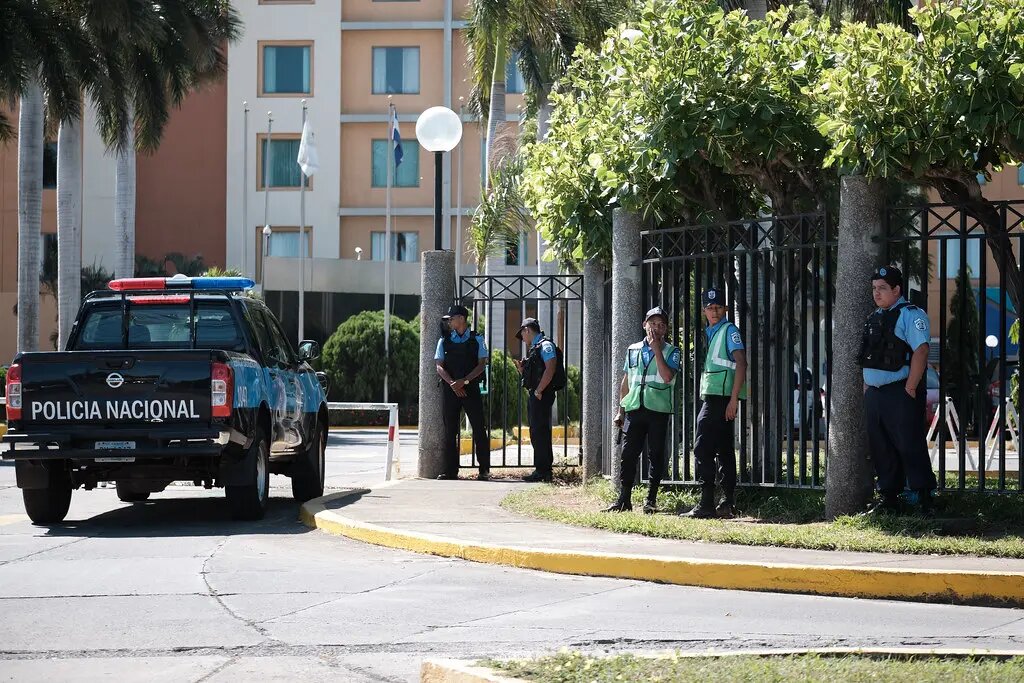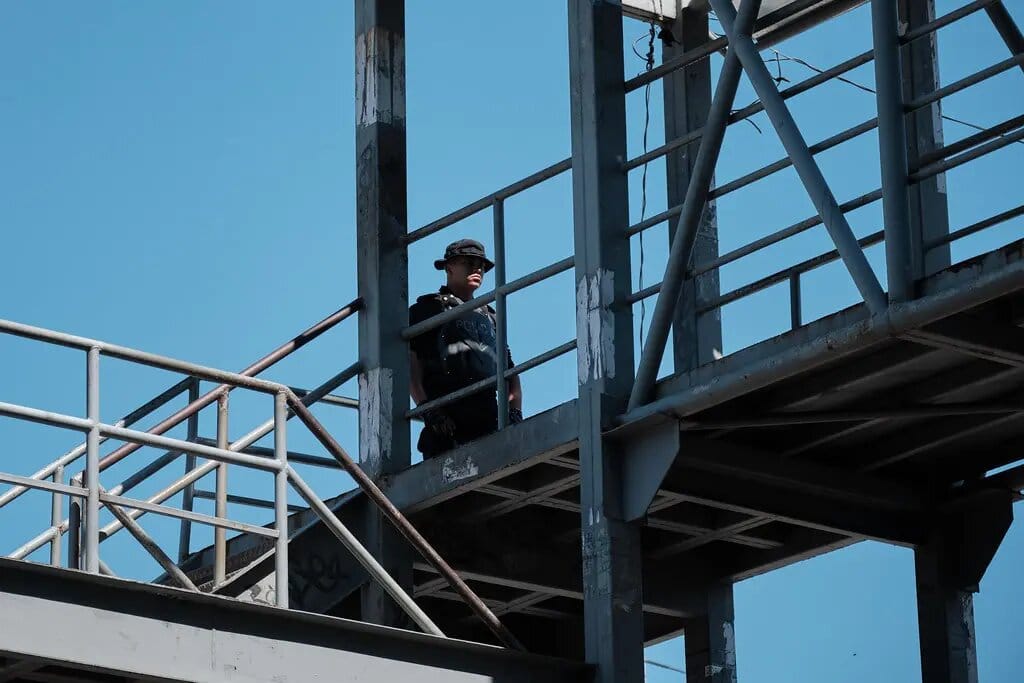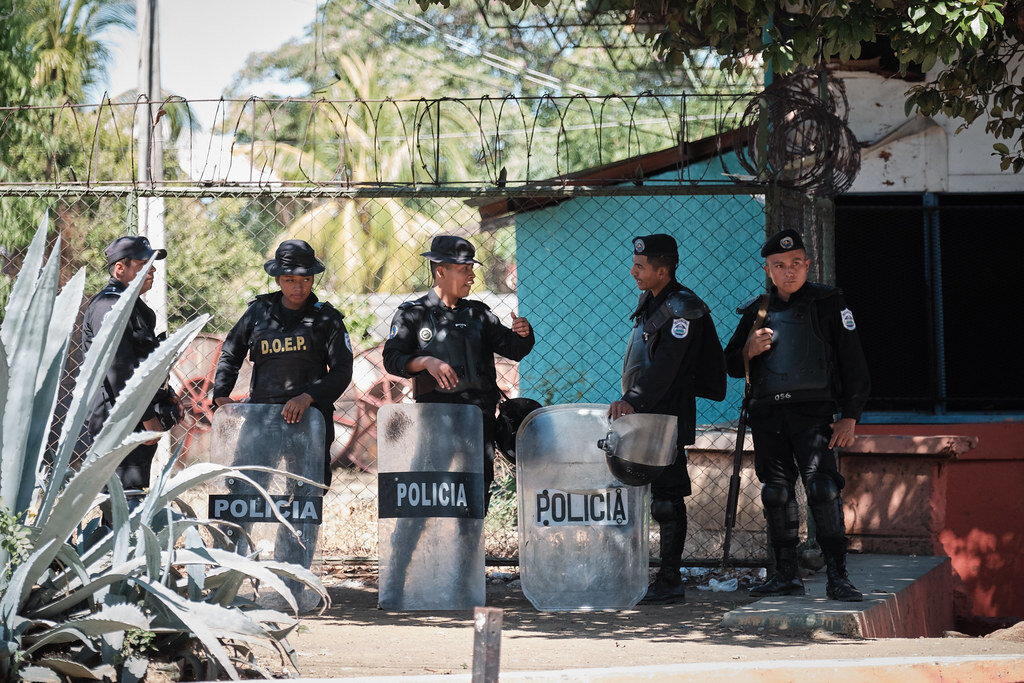5 de marzo 2021

The Return of the Military

PUBLICIDAD 1M
PUBLICIDAD 4D
PUBLICIDAD 5D
Vulnerability, impunity, fear, and the need to survive are behind the silence of the population in the face of abuses of power.

In Nicaragua some people “can internalize things and assume that nothing is happening
A contingent of riot police waits on the perimeter of the Central American University (UCA), in Managua. Rifles in hand they remain alert that no one raises their voice, raises a blue and white flag or carries out the slightest act of protest against the regime of Daniel Ortega and Rosario Murillo.
In Nicaragua, the rights to demonstrate and association continue to be violated and public liberties are still under threat. However, citizens seem indifferent to the de facto police state, imposed two and a half years ago, after the massacre and repression against the protests of the April Rebellion.
Less than two hundred meters from this hub of the Nicaraguan capital, on May 30, 2018, dozens of students and citizens were killed by policemen and paramilitaries, but today no one seems to flinch by the presence of armed men.
The patrol vehicles, police and their equipment seem integrated into the urban landscape, amid the hustle and bustle of public transportation buses. The situation is the same in the rest of the country. The general population tries to continue their lives on the fringes of the sociopolitical crisis. Has violence perhaps normalized in the country?
The psychologist Vilma Castillo thinks that the Nicaraguan population is actually “self-restraining.” Behind the apparent normalization of the regime’s abuses there are several factors. Such as the lack of protection, the fear of being imprisoned or attacked, impunity and the need to survive.
Some people “can internalize things and assume that nothing is happening, that the police are there, but are not going to do anything. I believe that is the intention of maintaining the police deployment. Having the population internalize that no opposition to the regime can be done,” notes Castillo.
In some way, she adds, they try to impose the feeling “we have to live with that.” Then “we contribute to the normalization when we accept it as part of daily life in all countries. If we do not see the differences, if we do not see the implications that has,” she adds.

Police officers outside a Managua hotel. Photo: Archive / Carlos Herrera / Confidencial
For the president of the Nicaraguan Center for Human Rights (CENIDH), Vilma Nunez, this moment of people’s apathy is forced by “the intensification of the repression.” In the last three years, the country has experienced “a rise in repression,” emphasized Nunez. And today there are people who cannot protest “not even within their own homes.”
Citizens, she says, are “resisting” in the face of “a strategy of total immobilization.” But “they do not have the possibility of defending themselves.” To protest against the regime in Nicaragua today is “to confront a beast, a real impossibility,” said the human rights defender.
In 2018, the Ortega and Murillo regime brutally repressed the massive protests against them. At least 325 persons were murdered between April and September, confirmed by the Inter-American Commission on Human Rights (IACHR). In September of that same year, the Police prohibited by decree the constitutional right to protest and imposed a de facto police state, still in effect today.
Nunez says “fear is the main weapon of the ruling regime.” She notes that the recent approval of laws that restrict civil and political rights, such as the Special Cybercrime Law and the Law for the Regulation of Foreign Agents, evidence that “brute force has not given them the desired results.” However, she believes that “permanent espionage has worked” causing a lot of mistrust among the population.
The psychologist Vilma Castillo agrees that “the repression mechanisms have not been in vain.” There are people confined in their own homes and those who are not “have to protect themselves.” We are facing “a normal reaction within an abnormal situation.” The abnormal is “the violence (of the regime), the repression and loss of rights.” However, “apathy, despair, lack of enthusiasm (of the people)” is something normal. She clarifies that “normal does not mean that it is good,” but “it is the only thing people can do.”

A policeman stationed on a pedestrian bridge in Managua. // Photo: Archive / Carlos Herrera / Confidencial
Former guerrilla commander and historian, Dora Maria Tellez offers her opinion. She says the fact that there are no massive protests against the regime does not mean that citizens are paralyzed. “People apparently continue with their lives” outside the political realm, but “their discontent persists in silence due to fear.”
“It is normal for people to be afraid. Because they (the regime) have killed and denied medical attention” to the wounded, emphasizes Tellez. But that discontent and fear of citizens, “does not benefits the regime at all.” In the end they could protest again, just as like in 2018, she adds.
In the Nicaraguan context, where rights are unprotected, “people learn self-restraint to protect themselves. If they make the slightest movement, there is an apparatus ready to pounce on them. You learn to live with violence by protecting yourself from the threat of harm,” explains Castillo.
Self-restraint is a consequence of fear “because you learn after the first blow” and in this case “after the deaths of 2018,” says the psychologist. Nor is it a healthy mechanism, because “not only does the aggressor deny me my rights, but I learn to self-deny them.”
When people self-restraint there are negative manifestations, but they do not express them. “They suffer inside,” explains Castillo. At this stage they may experience headaches, muscle aches, insomnia, gastritis, because it is not a natural process. “It’s something that occurs in the person’s mind and has a physical cost,” she adds.
The president of the Nicaraguan Chamber of Commerce, Carmen Hilleprandt, does not perceive normality in the country either, because behind the apparent recovery of the sector she represents, she lists that there are “confiscatory laws,” exaggerated taxes and the price of the basic products continues to grow.”

Police officers remain deployed day-in-and-day-out in the streets of Managua. Photo: Archive / Carlos Herrera / Confidencial
Companies “are looking for how to survive,” explains Hilleprandt, but “it is not that everything now is normal.” In the chamber “we always send letters to the Government, to the DGA (Customs), to the DGI (Taxes)”. Sometimes they respond and other times they do not. “But we have to continue doing it because that is our role,” she adds.
The president of CENIDH, notes that state entities with administrative functions “are also contributing to the repression.” She said the citizens are also suffering “an economic aggression.”
The fact that the population goes out to work every day and companies open their doors, despite the de facto police state, is due to “necessity” because “people have to eat,” argues the president of the Chamber of Commerce.
However, informal businesses have grown and “these people live from day to day. If they don’t work, they don’t eat.” The economy has been shrinking and “the poor have gotten poorer,” she affirms.
In 2020, during the third consecutive year of recession, exacerbated by the impact of the Covid-19 pandemic, it is estimated that more than 200,000 lost their jobs.
The psychologist Castillo agrees that “people cannot stop their lives, even in situations of violence.”
Hilleprandt acknowledges that in general the commerce sector is registering an apparent recovery, but it is due to the fact that this sector is rapidly adapting to the situation, as happened with the Covid-19 pandemic. “If you made mattresses before, now you sell masks,” she exemplifies.
Faced with the apparent indifference of the commerce sector regarding the country’s socio-political crisis, Hilleprandt said that “people do their part from where they are.” She recalls that “just as (Nicaraguans) have political rights (violated), we also have economic rights” to recover.
“People lose interest in politics when, if they do not go to work, they do not eat. So, politics affects these people, but in the end, they tell you: “I’m not interested, what I want is to eat.” Sometimes it hurts to hear those expressions, but the poorest people say it,” Hilleprandt commented.
Vilma Nuñez notes that the exercise of civil and political rights has become “somewhat clandestine.” There are people who “cannot even protest inside their home” because “the private space of population has been infringed.”
Nunez refers to cases such as that of the lawyer Daniela Arguello, who on February 16 was “arbitrarily” arrested while having coffee at the house of one of her neighbors who lives two doors from her property. Both were forced by police officers to walk handcuffed for several blocks until they reached the Somoto police station.
Data from the Blue and White National Unity, the Civic Alliance and the Blue and White Monitoring indicate that some 80 people have de facto house arrest. Some permanently and others on different days and schedules.
Tellez says the regime “changed its form of repression.” It went from massive murders in 2018 to the persecution of the main opposition leaders, to a de facto police state. Then came intimidation through punitive laws that limit the rights of the population and the exaggerated collection of taxes.
The only thing left for citizens is to “evade the repression” of the regime. To go out to the streets to protest at this time would be “like facing a beast with a rifle,” exemplifies Tellez. The organized opposition, she emphasizes, “is the worst defeat for the regime.”
The police state “predetermines that there is no protest,” explains psychologist Castillo, “but not the conscience of the people.”
Archivado como:
PUBLICIDAD 3M
Confidencial es un diario digital nicaragüense, de formato multimedia, fundado por Carlos F. Chamorro en junio de 1996.
PUBLICIDAD 3D